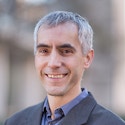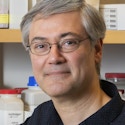Events
Upcoming Lectures
Past Lectures

What can genetics tell us about autism spectrum disorder?
On 22 March 2017, Stephan Sanders presented an update on the current state of genetics research in autism, highlighting some of the key findings that remain to be discovered, and discussing how these findings could ultimately benefit individuals with autism and their families.

Exploiting genetics to identify environmental risks for autism
On 22 February 2017, Mark Zylka described how candidate environmental risk factors for autism can be identified rationally, by pinpointing chemicals that interfere with the same molecular pathways that are affected in individuals with autism.

Genomic insights into human cortical development and neurodevelopmental disease
On 1 February 2017, Arnold Kriegstein described recent advances in our understanding of the unique features of human cortical development and discussed insights into the origins of neurodevelopmental disorders.

Potholes and progress on the road to translational treatments in autism spectrum disorder
Director, Division of Child & Adolescent Psychiatry, New York-Presbyterian/Morgan Stanley Children’s Hospital, Columbia University/New York State Psychiatric Institute
On 25 January 2017, Jeremy Veenstra-VanderWeele outlined critical challenges to translating genomic, cellular, and animal model research into new treatments for autism spectrum disorder.

How immune cells help wire the brain: Implications for autism and psychiatric illness
Associate Professor of Neurology, Harvard Medical School
On 2 November 2016, Beth Stevens discussed recent work that implicates brain immune cells, called microglia, in sculpting of synaptic connections during development and their relevance to autism, schizophrenia and other brain disorders.

Tuberous Sclerosis: Shedding light on the neural circuitry of autism
Professor in Neurology, Harvard Medical School
On 5 October 2016, Mustafa Sahin presented an update on translational research in Tuberous Sclerosis Complex.
- Previous Page
- Viewing
- Next Page